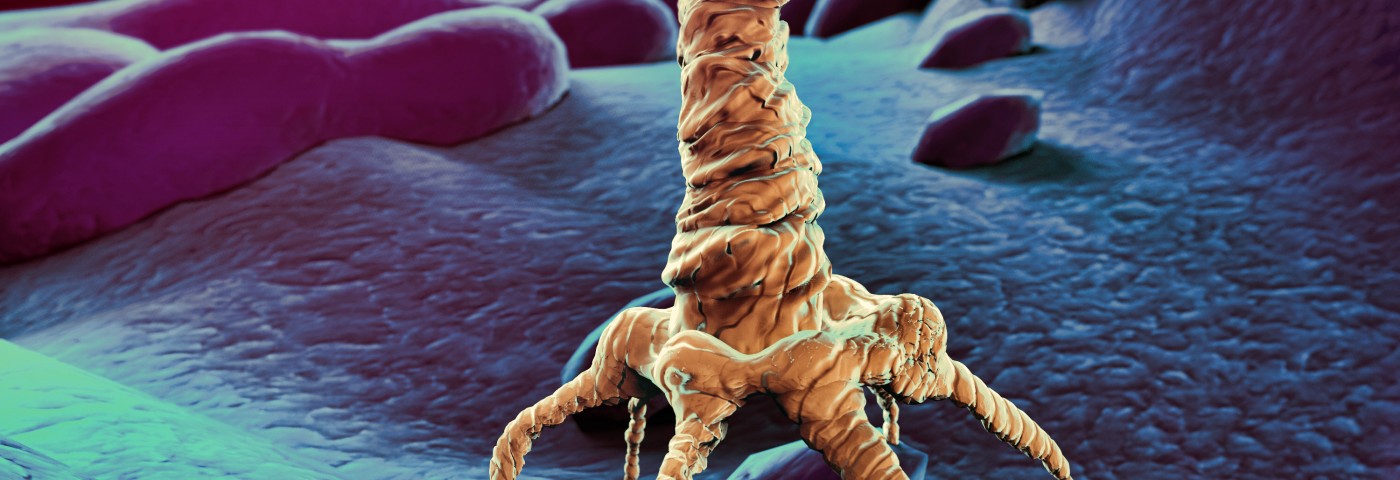AmpliPhi Biosciences Corporation, a biotech company dedicated to the development of novel bacteriophage-based antibacterial therapies, recently presented new clinical data regarding its proprietary investigational phage mix AB-PA01’s in vitro and in vivo activity, at the European Congress of Clinical Microbiology and Infectious Diseases (ECCMID).
The poster presentation, by Sandra Morales, Ph.D., AmpliPhi’s vice president of research, revealed that AB-PA01 could indeed infect and eliminate 87.8 percent of the 369 Pseudomonas aeruginosa clinical isolates from a global population of patients suffering from cystic fibrosis (CF).
The poster was titled “Bacteriophage therapy for the treatment of P. aeruginosa infections in cystic fibrosis patients.”
Bacteriophages are naturally occurring viruses that are highly specific for the bacterial hosts they infect. They are capable of rapidly killing their host, while amplifying themselves during this process. Bacteriophages are not affected by antibiotic resistance, and are also capable of disrupting bacterial biofilms, which are a significant line of defense for bacteria, contributing to antibiotic resistance. Bacteriophage-based therapy has the potential to produce strong local effects.
“Most CF patients suffer from chronic and MDR [multi-drug resistant] P. aeruginosa infections, sadly causing morbidity and mortality,” AmpliPhi Biosciences CEO M. Scott Salka said in a press release. “The need for alternative therapies is urgent as CF patients’ bacterial populations have become increasingly resistant to broad-spectrum antibiotics. We are excited by the current data and the potential for AB-PA01 to address this great unmet need in the CF patient population.”
Overall, AB-PA01 demonstrated activity in 87.2 percent of the 429 clinical isolates tested in vitro, including both MDR and sensitive strains of P. aeruginosa. The drug was also found to be active against 83.3 percent of 60 P. aeruginosa clinical isolates obtained from non-CF patients. An additional analysis showed that, in an acute murine lung infection model, 100 percent of AB-PA01 doses administered demonstrated meropenem-like activity (meropenem is an ultra-broad-spectrum injectable antibiotic used for the treatment of a wide variety of infections).
“These new data further highlight a compelling case for the potential of bacteriophage cocktails to treat P. aeruginosa infections in CF patients where the existence of biofilms and multi-drug resistant bacteria are increasingly problematic. Our research has been focused on developing a phage cocktail with a sufficiently broad range of activity to minimize the frequency of bacterial resistance observed in individual phage components,” Morales said.

